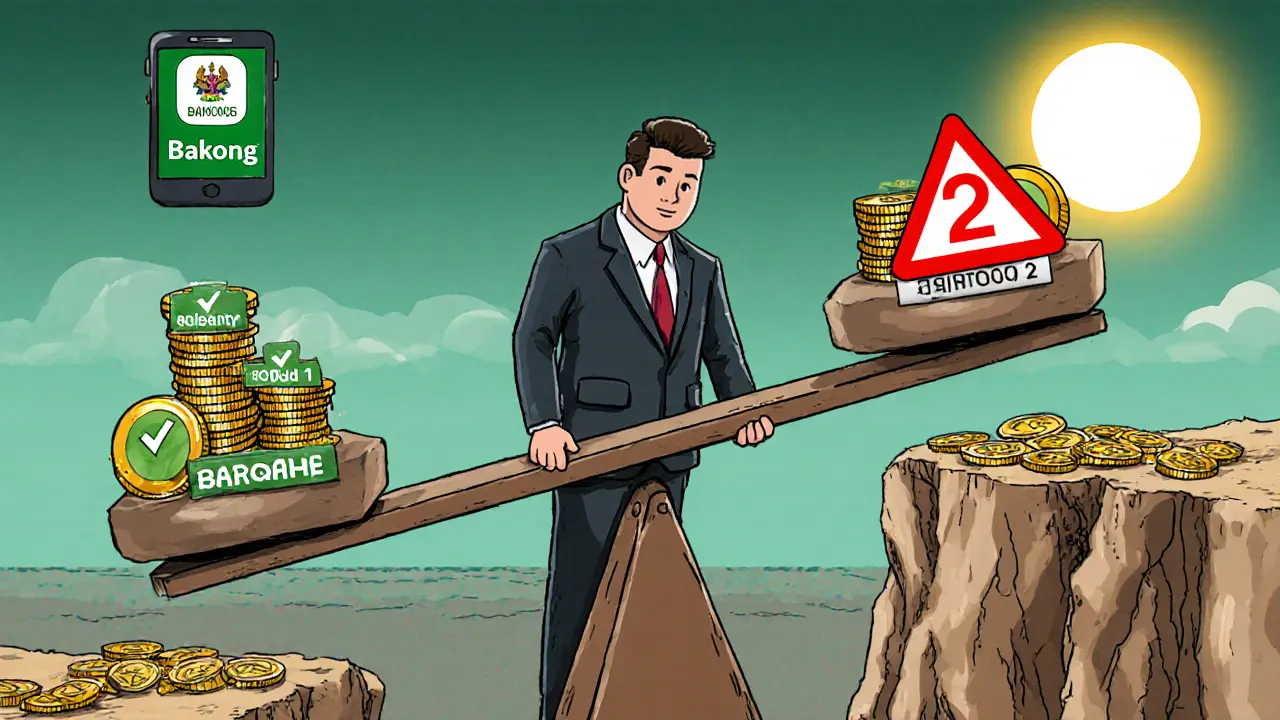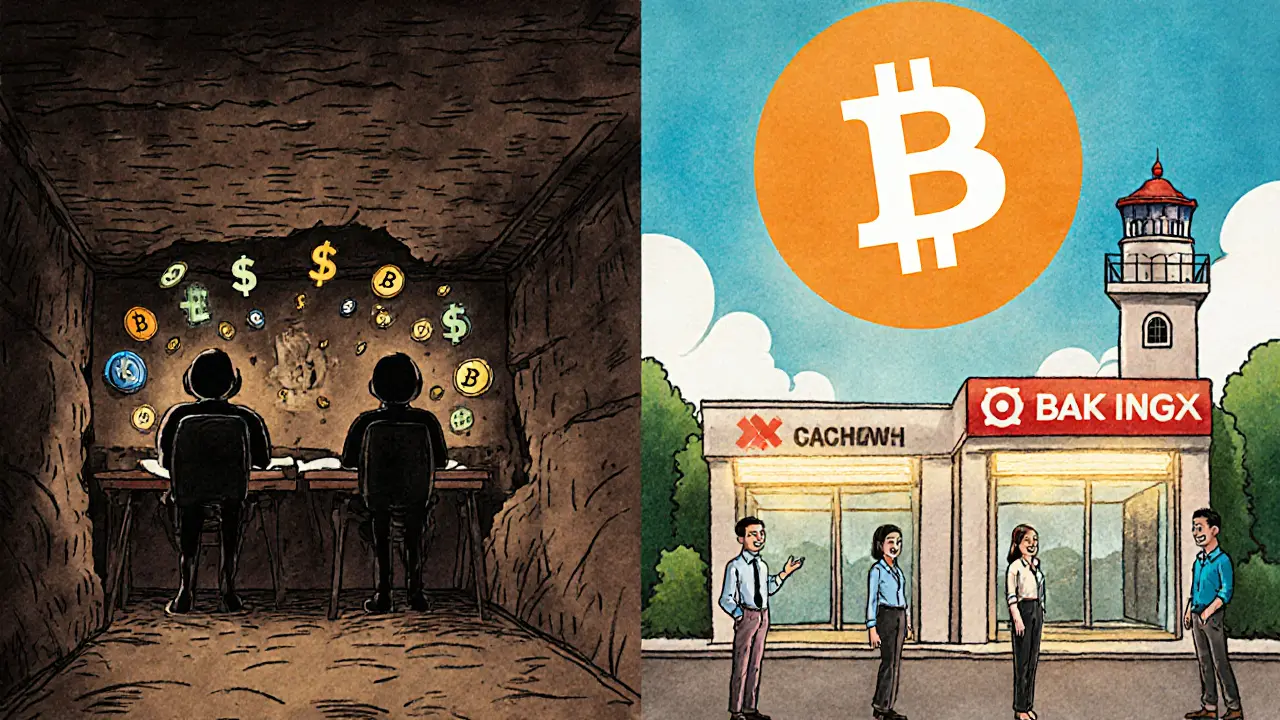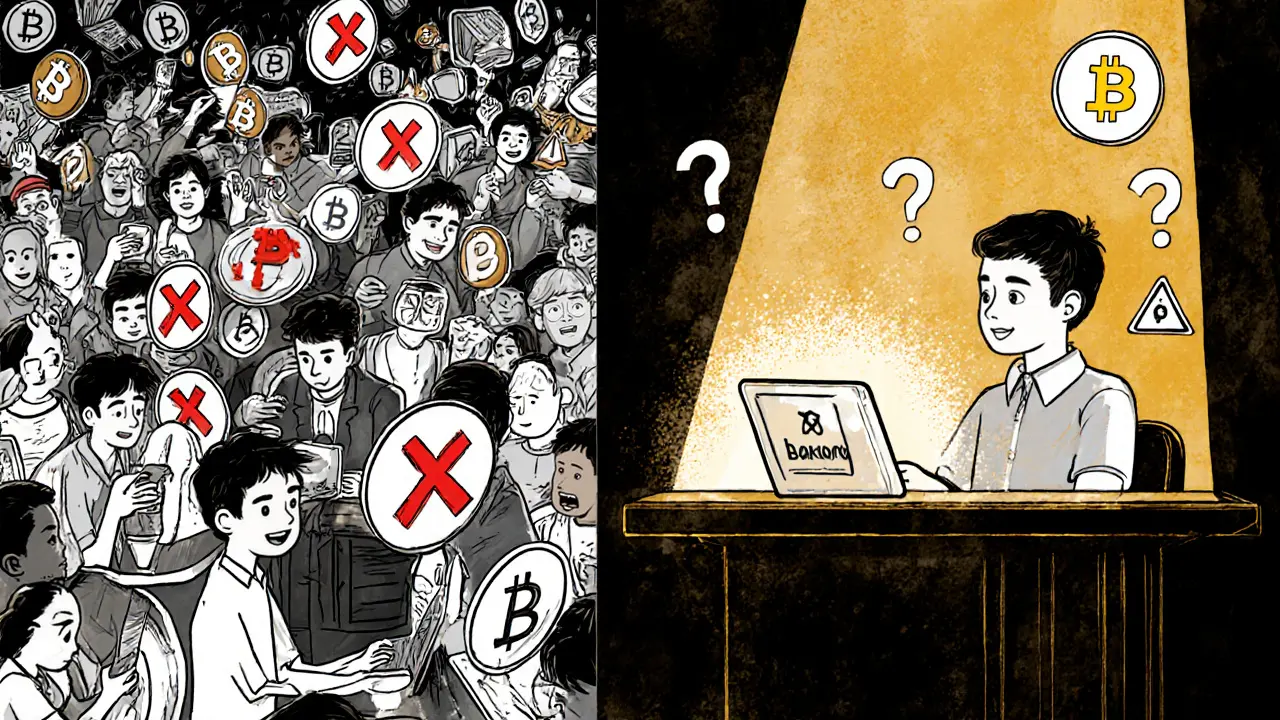Cambodia Crypto Platform Checker
Check if your preferred cryptocurrency exchange is legally permitted to operate in Cambodia based on the National Bank of Cambodia's regulations.
Key Details
- Regulation Type:
- Group Classification:
- User Risks:
When you hear "crypto ban," you picture a total shutdown - websites blocked, wallets frozen, trading outlawed. But in Cambodia, it’s not that simple. The National Bank of Cambodia didn’t just shut down cryptocurrency. It rewrote the rules.
It Wasn’t a Ban - It Was a Restructure
In November 2024, Cambodia blocked 16 major crypto exchanges, including Binance and Coinbase. News headlines screamed "Cambodia Bans Crypto." But that’s misleading. The National Bank of Cambodia (NBC) didn’t outlaw digital assets. It banned unlicensed offshore platforms. The goal? To pull crypto activity out of the shadows and into regulated channels. At the time, Binance alone had around 200,000 Cambodian users. People were trading Bitcoin, earning passive income, sending remittances - all through foreign platforms that answered to no Cambodian law. The NBC saw this as a threat: unregulated money flows, fraud rings, money laundering, and a growing risk to the Cambodian riel. So they didn’t ban crypto. They banned uncontrolled crypto.The Two-Tier System: Group 1 vs. Group 2 Assets
By January 2025, the NBC dropped its formal regulation: Prakas B7-024-735 Prokor. This wasn’t a crackdown - it was a blueprint. It split crypto into two clear categories:- Group 1: Tokenized securities and approved stablecoins. These are digital assets backed by real value - like USD or gold - and subject to strict oversight.
- Group 2: Unbacked cryptocurrencies like Bitcoin and Ethereum. High risk, high volatility, no issuer accountability.
Only Two Licensed Exchanges Are Legal
Right now, only two domestic platforms are allowed to operate: Royal Group Exchange (RGX) and Cambodian Network Exchange (CNX). These are the only places where Cambodians can legally trade crypto without breaking the law. Why only two? Control. The NBC wants to know who’s trading, how much, and where the money goes. Offshore exchanges don’t report to Cambodian authorities. RGX and CNX do. They’re required to follow anti-money laundering rules, verify user identities, and keep records. The goal is to make it easier to track fraud - and harder for criminal networks to hide. This is why the ban on Binance and Coinbase still stands in 2025. Even though people can still access them using VPNs, the NBC has no interest in chasing every user. Their focus is on cutting off the infrastructure that enables large-scale abuse. And they’re winning - at least for now.
Can Banks Offer Crypto Services? Yes - But Only for Clients
Here’s where it gets tricky. Many news outlets still say Cambodia "banned crypto." But legal experts from firms like DFDL and Ledger Insights say otherwise. The regulation doesn’t stop banks from offering crypto services - it stops them from trading crypto for themselves. Banks can now, with NBC approval:- Help customers buy or sell crypto (on-ramping/off-ramping)
- Store crypto safely (custody services)
- Convert crypto to riel or vice versa
Why Bakong Is the Real Story
You can’t understand Cambodia’s crypto move without understanding Bakong. Launched in 2020 with help from Japan, Bakong is Cambodia’s central bank digital currency (CBDC) - but it’s more than that. It’s a blockchain-based payment system that links directly to bank accounts. Over 65% of the population uses it. People pay for street food, send money to family, even pay rent - all through their phones, using riel. The NBC sees crypto as a competitor. Not because it’s dangerous - but because it bypasses the riel. When people use Bitcoin to send money, they’re not using the national currency. They’re not using Bakong. And that undermines the entire goal of financial inclusion. Bakong was built to reduce dollarization - the overuse of U.S. dollars in everyday Cambodian life. Crypto threatens that. So the NBC isn’t trying to kill crypto. It’s trying to make Bakong stronger.
The Crime Connection: Crypto Fraud and Forced Labor Rings
In October 2024, the U.S. Department of Justice indicted a group called Prince Group for running forced labor camps in Cambodia. Their business? Crypto fraud. Victims were trapped, forced to run scams - convincing people overseas to send crypto to fake investment platforms. This isn’t an outlier. Cambodia has become a hotspot for crypto-related crime. Scam compounds, fake exchanges, phishing rings - all thriving in the unregulated space. The NBC’s crackdown isn’t just about money stability. It’s about human safety. By forcing crypto activity onto licensed platforms, they’re making it harder for criminals to hide. Every transaction on RGX or CNX is traceable. Every user is verified. On Binance? Not so much.What’s Next? The Uncertain Road Ahead
As of October 2025, the NBC hasn’t published the full licensing rules for Crypto Asset Service Providers (CASPs). That means banks still can’t officially offer crypto services - even though they’re allowed to. The legal gray zone remains. Will more exchanges get licensed? Possibly. Will stablecoins grow? Likely. The Group 1 category opens the door for riel-backed tokens - maybe even a digital riel on the Bakong network. But enforcement is the big question. Can Cambodia really stop people from using Binance through VPNs? Probably not. But they don’t need to. They just need to make the legal path easier, safer, and more attractive. Right now, RGX and CNX are slow, clunky, and lack the liquidity of global exchanges. If they can fix that - and if the NBC keeps cracking down on fraud - Cambodia’s model could become a blueprint for other developing nations.Is Crypto Illegal in Cambodia?
No. But trading it without using a licensed platform? That’s illegal. Holding Bitcoin in your wallet? Not illegal. Using it to send money overseas? Risky. Using it to pay for goods in a scam compound? That’s a crime. Cambodia didn’t ban crypto. It made it accountable.Is it illegal to own Bitcoin in Cambodia?
No, owning Bitcoin or any other cryptocurrency is not illegal in Cambodia. The National Bank of Cambodia’s regulation targets unlicensed platforms and financial institutions - not individual holders. You can keep crypto in your personal wallet. But you can’t legally trade it through unapproved exchanges like Binance or Coinbase without risking legal consequences.
Can I use Binance in Cambodia in 2025?
Technically, you can still access Binance using a VPN, but it’s against Cambodian law. The Telecommunications Regulator blocked Binance’s website and over 100 related domains in late 2024. While enforcement against individual users is rare, the government has made it clear: using unlicensed platforms violates national regulations. Your funds aren’t protected, and you have no legal recourse if something goes wrong.
Are there any legal crypto exchanges in Cambodia?
Yes. As of 2025, only two domestic platforms are officially licensed: Royal Group Exchange (RGX) and Cambodian Network Exchange (CNX). These are the only exchanges permitted to operate under the supervision of the National Bank of Cambodia. All other platforms, including international ones, are banned from offering services to Cambodian residents.
Can Cambodian banks handle crypto transactions?
Yes - but only under strict conditions. Banks can offer crypto services to customers - like buying, selling, or storing digital assets - but only with prior approval from the National Bank of Cambodia. They are strictly forbidden from holding crypto on their own balance sheets. This means they act as intermediaries, not traders. The full rules for bank licensing are still being finalized.
Why did Cambodia target Binance and Coinbase specifically?
Binance and Coinbase were targeted because they were the most popular platforms among Cambodians, with Binance alone having over 200,000 users. They operated without any oversight from Cambodian regulators, making it impossible to track fraud, money laundering, or tax evasion. The NBC wanted to eliminate this regulatory arbitrage - where users chose foreign platforms to avoid local laws - and redirect activity to licensed domestic exchanges.
Does Cambodia’s crypto policy support financial inclusion?
Yes - but through Bakong, not crypto. While crypto can help unbanked people, Cambodia’s government believes unregulated crypto undermines its own digital currency system. Bakong already serves over 65% of the population, offering fast, low-cost payments in riel. The NBC’s goal is to strengthen this system, not replace it. Their approach is to allow crypto only if it complements - not competes with - the national financial infrastructure.
